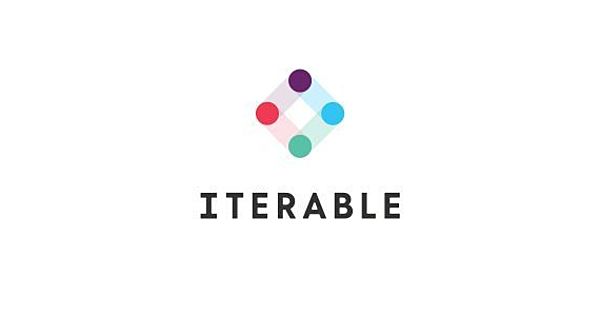In the fast-paced digital world of 2024, choosing the right email marketing tool is more crucial than ever. With businesses vying for consumer attention, the right tool can make or break your email marketing strategy. In this article, we delve into a detailed comparison of two leading platforms: ActiveCampaign and Iterable. Both offer unique features, but which one truly stands out as the best email marketing tool for 2024? Let’s find out.
| ActiveCampaign | Iterable |
|---|---|
 |  |
| G2 Score – 4.5 out of 5 stars | G2 Score – 4.4 out of 5 stars |
| TrustRadius Score – 8.0 out of 10 | TrustRadius Score – 8.6 out of 10 |
Ease of Use: Navigating the User Interface
When it comes to email marketing tools, the ease of use is a game-changer. You want a platform that not only offers advanced features but also makes them accessible and easy to navigate. Let’s compare ActiveCampaign and Iterable on this front.
ActiveCampaign: A User-Friendly Approach
ActiveCampaign is renowned for its user-friendly interface. Right off the bat, you notice how intuitively everything is laid out. Whether you’re a beginner or an experienced marketer, you’ll appreciate the clean design and straightforward navigation. The dashboard is well-organized, allowing you to access different features like automation, campaign management, and contact lists effortlessly.
One of the standout aspects of ActiveCampaign is its visual automation builder. It’s a breeze to create complex email sequences with drag-and-drop simplicity. This visual approach not only saves time but also makes it easier to conceptualize your marketing campaigns. You can see your entire email strategy at a glance, making adjustments as needed without getting lost in a sea of menus.
Additionally, ActiveCampaign offers a plethora of templates for emails and landing pages. These templates are not only professional-looking but also fully customizable. This means you can maintain brand consistency while also enjoying the flexibility to tweak designs to your liking.
Iterable: Advanced but Steep Learning Curve
Iterable, on the other hand, takes a more robust approach. It’s packed with features that cater to a wide range of marketing needs, from email campaigns to multi-channel marketing. However, this abundance of features comes with a steeper learning curve. New users might find themselves spending more time understanding the platform’s intricacies.
The interface, while comprehensive, can be overwhelming at first glance. Iterable offers a lot of customization options, which is excellent for seasoned marketers but can be daunting for beginners. Navigating through the various options and settings takes time, and you might find yourself consulting their support or help documents more frequently in the early stages.
That said, once you get the hang of it, Iterable’s power becomes apparent. The platform offers extensive segmentation capabilities, allowing you to tailor your campaigns to very specific audience segments. This level of granularity in targeting can significantly boost the effectiveness of your campaigns.
In terms of templates, Iterable also offers a wide range, but they lean more towards functionality than design. This means while you have a lot of options to work with, you might need to invest more time in design to make your emails stand out.
Feature Set: Diving into Capabilities
Beyond the ease of use, the richness of features is what truly sets an email marketing tool apart. Let’s dive into the capabilities of ActiveCampaign and Iterable to see which platform offers the most comprehensive feature set for your needs in 2024.
ActiveCampaign: A Balanced Feature Set
ActiveCampaign shines with a balanced approach to features. It offers a robust set of tools that cater to various aspects of email marketing without overwhelming the user.
One of the key strengths of ActiveCampaign is its automation capabilities. The platform provides advanced automation workflows that go beyond simple email sequences. For instance, you can set up triggers based on user behavior, like website visits or interaction with previous emails. This level of automation sophistication allows for highly personalized and timely email campaigns, increasing engagement and conversion rates.
Another area where ActiveCampaign excels is its CRM integration. The seamless integration of email marketing tools with CRM functionalities means you can manage your contacts more effectively, track interactions, and nurture leads throughout the sales funnel. This integration is particularly beneficial for businesses looking to streamline their marketing and sales efforts.
Email deliverability is another crucial aspect, and ActiveCampaign has a solid reputation in this area. They offer various tools to optimize your email deliverability, ensuring your messages reach your subscribers’ inboxes.
Iterable: Pushing Boundaries with Advanced Features
Iterable, in comparison, pushes the envelope with its feature set. It’s designed for marketers looking to implement sophisticated, multi-channel marketing strategies.
One of the standout features of Iterable is its multi-channel capability. Apart from email, you can manage SMS, push notifications, and even social media campaigns from the same platform. This holistic approach is ideal for businesses looking to maintain a consistent message across various channels.
Iterable also excels in segmentation and personalization. The platform allows for incredibly detailed segmentation, enabling you to create highly targeted campaigns. The personalization extends beyond just using the subscriber’s name; you can tailor content based on past behaviors, preferences, and even predictive analysis.
While both platforms offer A/B testing, Iterable takes it a step further with its sophisticated testing capabilities. You can run complex tests across different campaign elements to truly optimize your marketing efforts.
Customer Support and Community: Ensuring Reliable Assistance
The quality of customer support and the strength of the user community are critical factors, especially when dealing with complex tools like email marketing platforms. Let’s evaluate how ActiveCampaign and Iterable stack up in this regard.
ActiveCampaign: Committed Support and Active Community
ActiveCampaign is known for its exceptional customer support. The platform offers multiple channels for support, including email, live chat, and phone support. Their response times are impressive, with most queries being addressed quickly and efficiently. This level of support is invaluable, especially when you encounter issues that need immediate resolution.
Beyond just the official support channels, ActiveCampaign boasts a vibrant community. There are numerous forums, user groups, and online resources where users share tips, best practices, and offer assistance to each other. This community aspect is not just about solving problems; it’s a treasure trove of insights and strategies shared by real users, which can be incredibly beneficial for both new and experienced marketers.
Furthermore, ActiveCampaign provides a wealth of educational resources. Their blog, webinars, and training materials are top-notch, offering valuable information to help users make the most of the platform.
Iterable: Robust Support with a Focus on Learning
Iterable also offers robust customer support, with a team of knowledgeable representatives. Like ActiveCampaign, they provide support via email, live chat, and phone. Users generally report positive experiences with Iterable’s support team, noting their helpfulness and expertise.
However, where Iterable really stands out is in its educational offerings. The platform offers an extensive library of resources, including detailed guides, case studies, and industry reports. These resources are not just about using Iterable; they delve into broader marketing strategies and trends, providing users with a deeper understanding of the email marketing landscape.
In terms of community, Iterable has a growing user base, and there are forums and user groups where you can interact with other marketers. While the community might not be as large or as active as ActiveCampaign’s, it is still a valuable resource for getting tips and advice from fellow users.
Pricing and Value for Money: Balancing Cost and Features
In the world of email marketing tools, pricing can be a deciding factor. Let’s compare how ActiveCampaign and Iterable fare in terms of pricing and the value they offer for the cost.
| ActiveCampaign | Lite Plan: Starting at $15/month (for up to 500 contacts), offering basic email marketing, marketing automation, and a customer CRM. Plus Plan: Starting at $70/month, with additional features like landing pages, Facebook Custom Audiences integration, and lead scoring. Professional Plan: Starting at $159/month, including site messaging, attribution, and predictive sending. Enterprise Plan: Custom pricing, offering custom reporting, custom mailserver domain, and dedicated account rep. |
| Iterable | Iterable does not publicly list its pricing, as it typically offers custom pricing based on the specific needs of a business. The platform is designed for larger companies with advanced needs in cross-channel marketing campaigns, including email, SMS, push notifications, and more. Features usually include workflow automation, segmentation, A/B testing, and personalized messaging. Interested users need to contact Iterable directly for a customized quote based on their scale and requirements. |
ActiveCampaign: Flexible Pricing Tiers
ActiveCampaign offers a range of pricing tiers, catering to businesses of all sizes. Their pricing structure is primarily based on the number of contacts, which allows for scalability as your business grows. The basic plan starts at a relatively affordable rate, making it accessible for small businesses or individual entrepreneurs. As you move up the tiers, you gain access to more advanced features like CRM integration, lead scoring, and deeper analytics.
One of the appealing aspects of ActiveCampaign’s pricing is the flexibility it offers. You can choose a plan that fits your current needs and budget, with the option to upgrade as your requirements grow. This flexibility is especially beneficial for startups and small businesses that are mindful of their spending.
However, it’s important to note that some of the more advanced features are only available in the higher-tier plans. This means if you need these sophisticated tools, you might have to stretch your budget a bit more.
Iterable: Premium Pricing for Advanced Features
Iterable, in contrast, tends to be on the higher end of the pricing spectrum. This is reflective of the advanced features and capabilities the platform offers, particularly in terms of multi-channel marketing and extensive segmentation options.
Iterable’s pricing is also based on the number of users and the volume of messages sent, which can make it a significant investment, especially for larger businesses with extensive mailing lists. While this may put Iterable out of reach for smaller businesses or those with tighter budgets, the value it offers for larger enterprises or businesses with complex marketing needs can be worth the cost.
The platform is designed for businesses that are looking to implement comprehensive, data-driven marketing campaigns across multiple channels. If this aligns with your business needs and you have the budget for it, Iterable can be a powerful tool in your marketing arsenal.

Integration Capabilities: Connecting with Other Tools
In today’s digital ecosystem, the ability of an email marketing tool to integrate seamlessly with other software is crucial. Let’s examine how ActiveCampaign and Iterable integrate with other systems and tools.
ActiveCampaign: Wide Range of Integrations
ActiveCampaign stands out with its extensive integration capabilities. The platform integrates with over 850 different apps and services, covering a wide range of functionalities. This includes popular CRM systems, social media platforms, e-commerce solutions, and even smaller, niche tools.
These integrations are not just about data synchronization; they often allow for deep functional integrations. For example, integrating ActiveCampaign with an e-commerce platform like Shopify or WooCommerce can enable you to automate email campaigns based on customer shopping behavior or purchase history.
The platform also offers a robust API, which opens up possibilities for custom integrations. This is particularly beneficial for businesses with specific needs that require a more tailored approach.
Iterable: Focused on Advanced Integrations
Iterable also offers a solid range of integrations, with a focus on more advanced and data-driven tools. The platform is particularly strong in integrating with data analytics and customer data platforms. This allows businesses to leverage complex data sets to create more targeted and effective marketing campaigns.
Iterable’s integrations are designed to support its multi-channel approach. For instance, integrating with mobile app analytics tools can enhance your mobile marketing efforts, enabling more personalized push notifications or SMS campaigns.
Like ActiveCampaign, Iterable also provides an API for custom integrations, allowing businesses to connect and synchronize their unique set of tools and systems.
Analytics and Reporting: Measuring Success
A crucial aspect of any email marketing tool is its ability to provide insightful analytics and reporting. Understanding how ActiveCampaign and Iterable stack up in this domain can help you choose the tool that best aligns with your data analysis needs.
ActiveCampaign: Detailed Analytics for Data-Driven Decisions
ActiveCampaign offers comprehensive analytics and reporting features that allow users to track the performance of their email campaigns in detail. You can monitor open rates, click-through rates, and conversion rates, among other key metrics. These insights are crucial for understanding what works and what doesn’t, enabling you to refine your strategies over time.
Beyond basic metrics, ActiveCampaign provides more advanced analytics like contact trends, campaign comparisons, and automation reports. These deeper insights are particularly useful for businesses looking to understand customer behavior over time and the overall effectiveness of their marketing funnels.
Moreover, ActiveCampaign’s split testing feature lets you test different aspects of your emails (like subject lines, content, and send times) to see what resonates best with your audience. This data-driven approach to optimization can significantly improve the effectiveness of your campaigns.
Iterable: Advanced Reporting for In-Depth Analysis
Iterable also excels in the analytics and reporting department, offering a suite of tools for in-depth analysis of your marketing campaigns. Like ActiveCampaign, it provides all the essential metrics such as open rates and click-through rates. However, Iterable goes a step further by offering more advanced analytics capabilities, particularly useful for businesses running multi-channel campaigns.
One of Iterable’s strengths is its ability to track and report on customer journeys across different channels. This cross-channel reporting is invaluable for understanding how different marketing channels interact and influence each other.
Iterable’s analytics also emphasize user behavior and segmentation. You can dive deep into how different segments of your audience interact with your emails, which can be incredibly useful for tailoring your campaigns to specific audience groups.
Automation Capabilities: Streamlining Marketing Efforts
Automation is a key feature in any email marketing tool, significantly impacting the efficiency and effectiveness of marketing campaigns. Let’s delve into how ActiveCampaign and Iterable handle automation, and what this means for your marketing strategy.
ActiveCampaign: Advanced Automation with Personalization
ActiveCampaign is highly regarded for its advanced automation capabilities. The platform allows for the creation of complex automation workflows that can cater to a variety of marketing needs. These workflows can be as simple or as intricate as required, supporting everything from basic autoresponders to sophisticated, multi-step campaigns based on user behavior and interactions.
A standout feature of ActiveCampaign’s automation is its personalization capabilities. You can tailor emails based on a multitude of subscriber actions and data points, such as past purchases, website activity, and engagement history. This level of personalization helps in crafting highly relevant and engaging content that resonates with your audience.
Moreover, ActiveCampaign’s automation tools are user-friendly, featuring a visual workflow builder that makes it easy to design and understand your automation sequences.
Iterable: Multi-Channel Automation for Enhanced Engagement
Iterable also offers powerful automation capabilities, but with a greater focus on multi-channel marketing. While ActiveCampaign excels in email automation, Iterable extends this expertise to include SMS, push notifications, and social media channels, providing a unified approach to automation across different customer touchpoints.
Iterable’s workflow studio enables you to build complex, cross-channel workflows that can trigger actions across various platforms. This holistic approach ensures a consistent and cohesive user experience, enhancing engagement and potentially boosting conversion rates.
Like ActiveCampaign, Iterable also allows for deep personalization within its automation workflows. Leveraging user data and behavior, you can create highly targeted campaigns that deliver the right message, to the right person, at the right time, across the right channel.
Mobile Optimization: Catering to a Mobile-First Audience
In the current digital era, where mobile devices dominate internet usage, mobile optimization for email marketing tools is essential. Let’s assess how ActiveCampaign and Iterable adapt to this mobile-first environment.
ActiveCampaign: Responsive Design and Mobile App
ActiveCampaign places a strong emphasis on ensuring that your email campaigns are mobile-friendly. The platform offers a range of responsive email templates that automatically adjust to the size of the user’s screen, whether they’re viewing your email on a desktop, tablet, or smartphone. This responsiveness is crucial for maintaining readability and engagement, given the diversity of devices used to access emails today.
In addition to responsive email designs, ActiveCampaign provides a mobile app. This app allows you to manage campaigns, view reports, and even access some automation features on the go. For marketers who need to keep a pulse on their campaigns or make quick adjustments while away from their desks, this mobile app is a valuable tool.
Iterable: Robust Mobile Optimization and Multi-Channel Focus
Iterable also recognizes the importance of mobile optimization and offers responsive email templates to ensure your content looks great on any device. Like ActiveCampaign, these templates are designed to automatically adapt to different screen sizes, providing a seamless viewing experience for your audience.
However, Iterable takes mobile optimization a step further by integrating mobile channels like SMS and push notifications directly into its platform. This integration reflects Iterable’s commitment to a multi-channel approach, recognizing that a significant portion of customer interactions now occurs on mobile devices.
Iterable’s analytics also provide insights into how users interact with your campaigns on mobile devices, allowing you to tailor your strategy to better engage with a mobile-first audience.
Conclusion
In conclusion, both ActiveCampaign and Iterable offer compelling features for email marketing in 2024, but they cater to different needs. ActiveCampaign stands out with its user-friendly interface, powerful email automation, and a wide range of integrations, making it an excellent choice for small to medium-sized businesses looking for an effective and accessible email marketing solution.
On the other hand, Iterable excels with its advanced multi-channel capabilities, sophisticated segmentation, and in-depth analytics. It’s tailored for larger businesses or those requiring complex, data-driven marketing strategies across various digital channels. Ultimately, the choice between ActiveCampaign and Iterable should be based on your specific marketing needs, budget, and the scale at which you operate. Both platforms are capable of elevating your email marketing efforts, but your decision should align with your business’s unique goals and resources.
Read Next
- Email Marketing Metrics that Matter: Tracking Success and ROI
- Harnessing the Power of Interactive Content in Email Campaigns
- The Future of Email Marketing: Predictions and Trends to Watch
- Segmentation in Email Marketing: Targeting the Right Audience with the Right Message
- Email Marketing for E-commerce: Strategies to Drive Sales and Retention





















